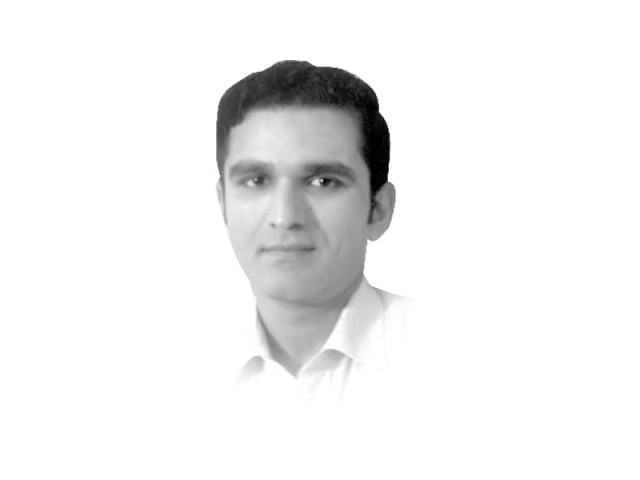Useless posturing
Membership of Indian Jammu and Kashmir Assembly in CPA does, in no way, mean that Pakistan accepts its legal status

The writer teaches at IT University in Lahore and is the author of A Princely Affair: The Accession and Integration of the Princely States of Pakistan, 1947-55. He tweets at @BangashYK.
First, this was the first time Pakistan was going to host the Commonwealth Parliamentary Association (CPA) meeting — a very important and prestigious event. The CPA is composed of all the members of the 53-strong Commonwealth of Nations, ranging from Canada to South Africa, Nigeria, Kenya, Australia and India, represented by about 175 legislative bodies. As such, it is a significant body of elected members of legislatures from all around the world. With shared history and parliamentary practices, it is an important avenue for Pakistani legislatures to learn from best practices elsewhere and strengthen our own nascent democracy. All our Commonwealth neighbours, India, Sri Lanka and Bangladesh, have hosted the conference in the past and it was long overdue that Pakistan holds its first such event. Further, in terms of international prestige, such an event would have been crucial in promoting a positive image of the country and would have helped highlight our non-terror related importance and work in international forums. Hence, the importance of this event at this time cannot be understated.
Secondly, the speaker of the Jammu and Kashmir Assembly from Indian-held Kashmir is a member of the CPA, according to its constitution, which states that any legislature duly constituted and elected under domestic law can become a member. As such, the assembly of the Indian-held Jammu and Kashmir applied and was accepted as a member of the CPA in 1974 — 40 years ago! Since then, it has been an active member of the CPA and has participated, together with Pakistan, in several of its meetings, conferences and events. The Indian-held Jammu and Kashmir Assembly has not suddenly become a member of the CPA.
Thirdly, the membership of the Indian-held Jammu and Kashmir Assembly in the CPA does, in no way, mean that Pakistan accepts its legal status. An organisation is governed by its own constitution, and this membership has no implications on the particular laws and views of a member country. If the speaker of the National Assembly had invited the speaker of the Indian-held Jammu and Kashmir Assembly in his official capacity as speaker, then that would have been a problem. However, he was inviting all members of the CPA to a CPA meeting, of which he might be chair, but as chair, he has to reflect the views of the organisation and not the particular country he belongs to. No wonder then that the Commonwealth Secretariat as well as the chairperson of the CPA, the speaker of the Bangladesh parliament, called on Mr Sadiq to invite all members without discrimination.
This concept of how roles are separated is already enshrined in the Commonwealth (and is something which we must learn), especially, in the role of Her Majesty Queen Elizabeth II as Queen — equally — of all her realms. Therefore, when she is in Canada, she is Queen of Canada; when in Australia, Queen of Australia, and if she had visited Pakistan before 1956, then Queen of Pakistan, and not Queen of the United Kingdom. Different roles have different responsibilities, and while one person might be doing them, we must not collate and confuse roles. Further, if we are to take a stance on India’s occupation of several areas, then the list is quite long: we should not invite the speaker of the Gujarat Assembly since that includes regions legally (still!) a part of Pakistan, Junagadh and Manavadar, and we should not invite the speaker of the Andhra Pradesh (or even Telengana) Assembly since these are provinces that have land which was annexed after the occupation of the state of Hyderabad in 1948 — both these issues are still pending before the UN.
Pakistan’s democracy is still developing and we need to still learn from best practices elsewhere — and a differentiation of roles is an important lesson. We must not compromise on our just and legal stances, but we must not also let these thwart our own development.
Published in The Express Tribune, August 22nd, 2015.
Like Opinion & Editorial on Facebook, follow @ETOpEd on Twitter to receive all updates on all our daily pieces.














COMMENTS
Comments are moderated and generally will be posted if they are on-topic and not abusive.
For more information, please see our Comments FAQ